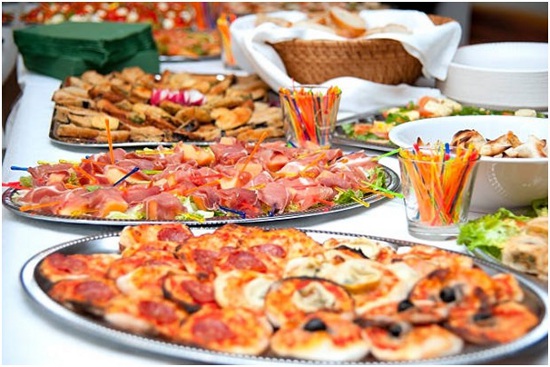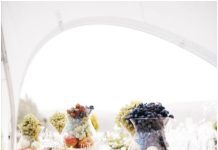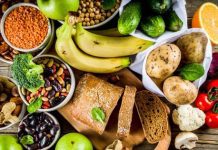The main ingredients of the dishes are garlic, onions, alcohol, lentils and pork. These are haram in Islam which means forbidden to eat or drink under Islamic law. So a halal food caterer would follow certain guidelines listed in the Quran. The food supplier has to be Muslim, use certification services and prepare the food in strict accordance with Islamic law.


The Quran includes guidelines that are important for Muslims while eating or preparing foods. This is however not an exhaustive list of all things that could constitute halal products because products other than foods might also contain haram. These guidelines include the following:
1. Foods should not be a mixture of meat and dairy products.
2. Pork is forbidden as food for Muslims, though some sects only prohibit the consumption of pork from pigs that have been slaughtered in a certain way or that are not healthy to eat. Other types of pig are not restricted, though some scholars might favour using another animal’s meat or a vegetarian source.
3. A Muslim is only allowed to eat the meat of an animal that has been slaughtered in the name of Allah.
The Prophet Muhammad once said in a hadith, “Allah has decreed for every son of Adam his share of zina (adultery), whether he is aware of it or not.” Zina also forbids Muslims to eat foods that are created by adultery because it is not pure. While these are all guidelines set out in the Quran for halal food catering in Singapore, there are also other guidelines set out in the hadith. To prepare or produce halal foods, it is important to be careful of all sources used for ingredients. There are other guidelines in the hadith that include:
- Animals should not be fed anything haram such as alcohol or pork
- The blood and saliva in an animal’s mouth when slaughtered should be completely drained out.
- The knife used for slaughter should be sharp enough to cut the windpipe and throat of an animal easily, so that it bleeds out thoroughly.
- All bones must be broken before the meat is cooked or roasted over a fire.
As you can see, there are many guidelines for preparing and producing halal foods. Therefore a food catering business has to be very careful about the ingredients used in its dishes. Some of these guidelines are also followed by other religions, especially Jews who have dietary laws of kashrut.


So what are some examples of halal food catering in Singapore? Seafood is an obvious choice due to the Quran’s words on Allah creating all types of animals and fish in water. Low-fat dairy products such as cheese, yogurt and butter are also okay because they do not exist in a mixture with meat.
Grains and vegetables can be used to make many dishes including halal foods like breads, soups, salads and meats. Grains and veggies also make for good staples to be eaten as well. For example, rice or noodles can be used as a staple or part of a meal like fried rice. Vegetables like carrots and potatoes are popular vegetables in Asia and can be boiled (chai tow kway), stewed (sayur lodeh) or fried (curry).
Halal foods are more than just meat dishes. To Muslims, halal foods also include ingredients used in the recipes or served with the food dishes. They care about what is inside the dish and not just the appearance of it.
By following these guidelines, Muslims can ensure they are eating halal foods that are purified and made with lawful ingredients. Halal foods also show a level of care given to the preparation of food for fellow Muslims, which is another important aspect of Islam. Food can be one way to bring people together as well as help those who have less fortunate circumstances through restaurants or catering services.
In Singapore, there are facilities provided by the government to help halal food business owners learn more about what they should do to prepare their dishes in a way that is lawful. The Islamic Religious Council of Singapore (Muis) runs the Halal Technical Support Group, which provides information for businesses on how to operate in accordance with the law.
















